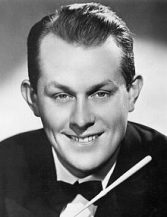On May 8, 75 years ago today, World War II was virtually over, particularly in Europe. I want to salute those who went before us, those who suffered and sacrificed their lives during that awful time. To all of those who served, whether on the front lines or at home, we thank you. Below is part of an email hubby’s friend sent out commemorating the day’s importance, shown in the songs of the time. He has graciously allowed me to pass it on.
It was a time largely bereft of happy memories, but the music of the time was a comforting factor…to both the troops fighting the war and to their loved ones at home. During the Nazi rule, radio ownership in Germany rose from 4 to 16 million households. By 1940, 80% of American households owned a radio and, although the radio could be used to boost American morale, the American government censored radio channels in fear that enemy agents could send coded messages masked as song requests. [The BBC’s Radio Londres was operated by the Free French and actually broadcast appeals to the French to rise up, as well as instructions coded as “personal messages” to the French Resistance.]
Many World War I songs had centered on propaganda, morale, and patriotism; those in World War II focused more on romance, sentimentalism and strength. Songs that were overly patriotic or militaristic were often rejected by the public. [Wikipedia]
Here are just a few of the songs and artists of the day:
“Bugle Call Rag”, written by Jack Pettis, Billy Meyers and
Elmer Schoebel, it was first recorded by the New Orleans Rhythm Kings in 1922 as “Bugle Call Blues”. The tune was popularized as a standard in renditions by Benny Goodman [playing it here in 1936], and Glenn Miller. Duke Ellington, The Chocolate Dandies with Coleman Hawkins on the Saxophone, Ted Lewis, Cab Calloway, The Mills Brothers, Peanuts Hucko, Eddie Lang, Merle Travis, Bill Monroe, Nat Gonella, Syd Lawrence, Abe Lyman, Ray Noble, Earl Bostic, The Washingtonians, The Victor Military Band, Glen Gray, Meade Lux Lewis, Teddy Wilson, Johnny Dankworth, Muggsy Spanier, Harry Roy, Billy Butterfield, Doc Severinsen, Pete Fountain, Red Nichols, and Al Caiola.
“Lili Marleen”, written in 1915 as a poem, it became a German love song which became popular throughout Europe and the Mediterranean among both Axis and Allied troops. It was first recorded in English by Lale Andersen in 1939 under another title but actress Marlene Dietrich’s 1944 version was recorded for the Office of Strategic Services radio station to demoralize German troops. You might turn the speakers up to pay close attention to her contemplative introduction of the song.
“The Last Time I Saw Paris” was composed by Jerome
Kern, with lyrics by Oscar Hammerstein II, and published in 1940. By December 1940, six versions of the song were on the charts, with Kate Smith having exclusive radio rights for the song for six weeks. It won the Academy Award for Best Original Song in 1941, although it obviously was not written for the movie of the same name. Since then the Academy has changed its rules to require the nominated songs to have been written for the attendant film.
“Praise the Lord and Pass the Ammunition”, performed by Kay Kyser and his orchestra and written by Frank Loesser, the title was developed out of a real incident aboard the USS New Orleans during the attack on Pearl Harbor. [see here]
“When the Lights Go On All Over the World” with Vaughn Monroe and his orchestra. It charted #1 in 1942; the accompanying video shows brighter times at war’s end.
“I’ll Be Home for Christmas”, written by the lyricist Kim Gannon and composer Walter Kent and recorded in 1943 by Bing Crosby. Great nostalgic photos showing troops at Christmas time in 1943 accompany the tune. Good opportunity to think of your relatives who served then and since.
And my personal favorite, the enormously popular “We’ll Meet Again” with English songstress Dame Vera Lynn and more photographs. The song reached #29 on the U.S. charts and Lynn sang the song in London on the 60th Anniversary of VE Day in 2005. She celebrated her 103rd birthday in March. And, yes, the song played at the very end of the 1964 black comedy film “Dr. Strangelove or How I Learned to Stop Worrying and Love the Bomb.”
Sheltering in Place – Day 53



